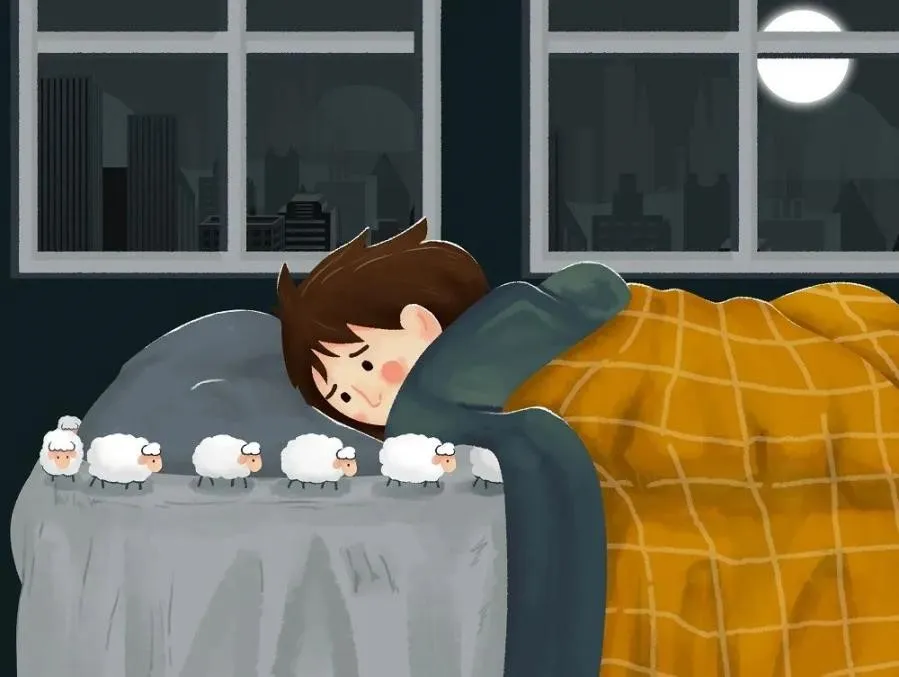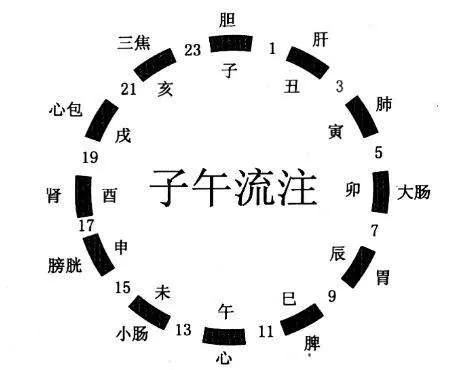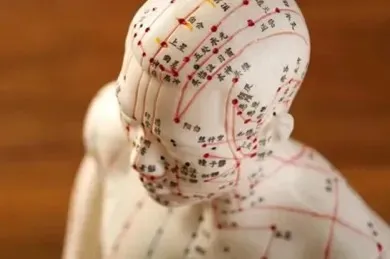Have you been sleeping well recently? Have you ever worried about having insomnia problems? Instead of slipping into a sweet dreamland, you find yourself tossing and turning in bed all night, unable to fall asleep. Dr. Zhu often encounters patients seeking treatment for insomnia during consultations. Today, Dr. Zhu will talk to everyone about this common illness.
First of all, what are the symptoms of insomnia?
Insomnia is the most common type of sleep disorder, mainly characterized by light sleep, frequent dreaming, easy waking, frequent awakenings, waking up early, and even being plagued by nightmares, feeling tired and lacking energy after waking up. Long-term insomnia is often accompanied by symptoms such as headaches, dizziness, palpitations, forgetfulness, fatigue, restlessness, and frequent dreaming.

What are the dangers of insomnia?
Modern medicine believes that insomnia can trigger a variety of diseases: the long-term accumulation of insomnia and sleep disorders can easily induce or exacerbate cardiovascular diseases, hypertension, diabetes, tumors, and also increase the risk of stroke. I believe everyone has some understanding of this, so I won't go into detail here.
Let's hear what traditional Chinese medicine has to say.
The ancient Chinese believed that within the twelve earthly branches of a day, the rhythm and phase characteristics of the waxing and waning of the body's vital energy and blood are regular. They summarized this pattern. Here are a few examples.

The hour of the Rat (23:00-1:00): The Gallbladder Meridian is in charge ("Dang Ling" means "on duty").
The hour of the Rat: Time to go to bed!
Human body condition: The gallbladder needs to undergo metabolism. When a person sleeps during the hour of the Rat, the gallbladder can complete its metabolic process. However, at this time, the heart function is at its weakest, and most heart disease patients have their attacks at night.
There is a particularly strange phenomenon in life: after dinner in the evening, we feel drowsy around 8 or 9 o'clock, but we become wide awake at 11 o'clock. Therefore, many people now are used to starting work after 11 o'clock. Some people also have the urge to eat something at 11 o'clock at night. This can be understood as the time when Yang energy begins to rise. Therefore, an important principle is to try to sleep before 11 o'clock so that this vitality can be gradually nurtured. Human sleep is closely related to lifespan, so sleeping is essentially nurturing Yang energy.
The hour of the Ox (1:00-3:00): Deep sleep to protect the liver
Corresponding meridian: Liver meridian
Human body condition: This is the best time for the liver to repair itself. Human thinking and actions rely on the support of liver blood. Old blood needs to be discarded, and new blood needs to be produced. This kind of metabolism is usually completed when the liver meridian is at its strongest during the hour of the Ox. Therefore, to nourish the liver blood well, it is important to sleep well from 1 to 3 o'clock.
The hour of the Tiger (3:00-5:00): Deep breathing in dreams
Corresponding meridian: Lung meridian
This time is the beginning of the transition from stillness to movement, a process of transformation. The human body's qi and blood need to shift from stillness to movement, which requires deep sleep to complete. Therefore, this time should be when you are sleeping most soundly.
The hour of the Rabbit (5:00-7:00): Time to wake up
Corresponding meridian: Large Intestine meridian
This is the best time for the Large Intestine meridian to be active. The lungs fill the body with ample fresh blood, which in turn stimulates the Large Intestine meridian into an excited state, completing the process of absorbing water and nutrients from food and excreting waste. By this time, it is basically dawn, and the "Heavenly Gate" is open.
Therefore,the Chinese ancients believed that waking up at five in the morning was normal. Then, one should go to defecate, expelling the garbage and toxins, which is the "Earth Gate" opening, meaning the anus should open. Therefore, it is important to develop the habit of morning bowel movements.
Doctor Zhu believes that sleep is essentially a detoxification process. When the body sleeps, the speed of blood circulation decreases, which helps reduce the time harmful substances stay in the body and aids in the expulsion of metabolic waste. We know that the main side effects of drugs that keep people awake are the destruction of the central nervous system and liver metabolism.
What constitutes good sleep? You can test yourself to see how many of the following you can achieve:
1.Fall asleep quickly within 10-20 minutes;
2. Do not wake up easily at night, and if you do wake up, you can fall back asleep quickly;
3. Forget dreams quickly after waking up from a sleep with nightmares;
4. Wake up naturally without an alarm clock;
5. Feel energetic and refreshed in the morning without any fatigue.
What does Traditional Chinese Medicine (TCM) consider to be the causes of insomnia?
The most common cause is emotional factors. Excessive emotions (anger, joy, worry, sadness, fear) can all lead to dysfunction of the internal organs and result in sleeplessness. Modern people live fast-paced lives, facing significant work and study pressures, and overseas Chinese also face pressures related to language and cultural environments.
Imbalance between work and rest, including both overwork and excessive rest. Overwork mainly refers to prolonged inappropriate activities and excessive physical labor beyond what one's strength can handle. Excessive rest means a lack of appropriate physical labor and participation in sports, which over time can harm the body, also known as rest injury.
Post-illness body weakness. Long-term illness can lead to blood deficiency, or as one ages, the blood volume decreases, leading to insufficient heart blood and a lack of nourishment for the heart, causing restlessness and insomnia.
Lastly, one might overlook this point. An uneasy stomach leads to restless sleep. Overeating, alcohol, coffee, strong tea, and other factors can cause food stagnation or stimulate the spleen and stomach, leading to the production of phlegm-heat, disharmony of the stomach qi, and insomnia.
Is there an effect from TCM treatment for insomnia?
TCM emphasizes treatment based on syndrome differentiation, using different treatment plans according to various symptoms (please match your symptoms accordingly).
If you have difficulty falling asleep, are irritable and easily angered, have many dreams when you do sleep, and also experience depression, feeling down, being easily stressed, a tendency to sigh, heavy thoughts that are hard to let go, anxiety, often having a dry and bitter mouth, and for women, breast distension and pain, then it is a stagnation of qi in the liver meridian, and you need to soothe the liver and resolve depression.
If you are completely unable to sleep all night, are easily angered, and have symptoms such as dizziness, head fullness, red eyes, and ringing in the ears, then in addition to heat in the liver meridian, there is also heat in the heart fire, and you need to clear the liver and heart fire.
If you are troubled by insomnia, have a stuffy chest and epigastric fullness, nausea, belching, and symptoms such as a heavy head, dizziness, then it is phlegm-heat disturbing the heart, and you need to clear phlegm-heat and calm the mind.
If you have difficulty falling asleep, have many dreams and wake up easily, palpitations, forgetfulness, fatigue, poor appetite, accompanied by dizziness, blurred vision, a pale complexion, fatigue in the limbs, abdominal distension, and loose stools, then it is a deficiency of both the heart and spleen, and you need to nourish the heart and spleen and promote the production of qi and blood.
If you are troubled by insomnia, have difficulty falling asleep, palpitations, many dreams, accompanied by back and knee soreness, night sweats, five-center heat (palms, soles, chest, and vertex of the head), dry throat, men with seminal emissions, and women with irregular menstruation, then it is kidney yin deficiency plus heart fire, and you need to nourish kidney yin and clear heart fire to calm the mind.
If you are troubled by insomnia and have difficulty falling asleep, along with feeling cold, or having a cold sensation in the lower back and lower body, and frequent nighttime urination, then it is kidney yang deficiency, and you need to warm and tonify kidney yang.
If you are troubled by insomnia with timidity and palpitations, easily startled by things, being constantly vigilant, accompanied by shortness of breath, spontaneous sweating, fatigue, and weakness, then it indicates poor function of the gallbladder, and you need to tonify qi and calm down.
Lastly, if you suffer from insomnia due to overeating, causing abdominal pain, then just eat a little less for dinner and drink less alcohol.
For the various symptoms mentioned above, TCM has different treatment plans and also varies in medication, truly achieving individualized treatment, one prescription for one person.
Is acupuncture treatment effective for insomnia?
Acupuncture is currently an important non-drug therapy in clinical treatment for insomnia, capable of regulating the "nervous-endocrine-immune system" and the "hypothalamus-pituitary-adrenal axis." By stimulating acupoints, it can affect the brain's nervous system to express states of excitement and inhibition, regulating the dynamic balance of excitatory and inhibitory neurotransmitter expression. Dr. Zhu has many years of experience using acupuncture to treat insomnia. Dr. Zhu believes that the main pathogenesis of insomnia is the imbalance of yin and yang, with yang excess and yin deficiency, yang not connecting with yin.
By stimulating acupoints, it can harmonize yin and yang, soothe the mind, calm the heart, and aid in sleep. The number of acupoints used will not exceed 10, and there is no significant pain. Many patients can fall asleep during treatment. Of course, for patients with stubborn insomnia, moxibustion on specific acupoints is usually combined with acupuncture, with equally immediate results, suitable for patients who are afraid of acupuncture.

Some pictures in the article are from the Internet. If there is any infringement, please contact us to delete them.